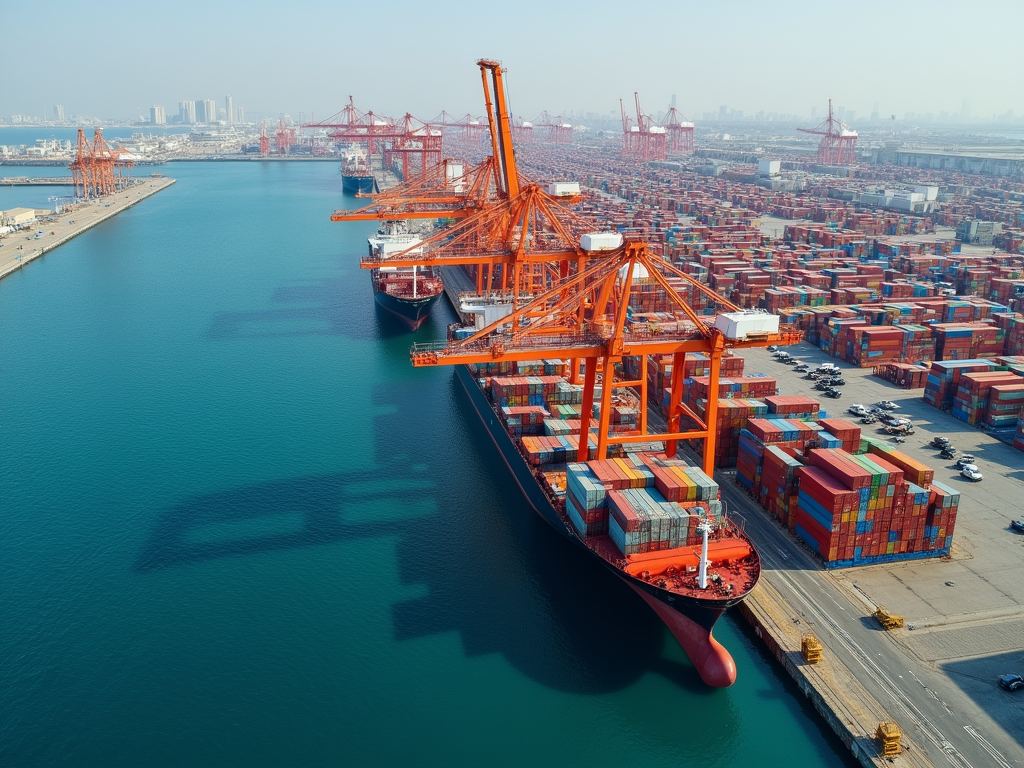
Dubai’s trade agreements play a pivotal role in enhancing its global business landscape. These agreements foster economic growth by facilitating smoother trade operations, reducing tariffs, and opening new markets for businesses. As a major international hub, Dubai has strategically aligned itself with various countries through free trade agreements and economic partnerships, which significantly benefit both local and international businesses. With its robust logistics infrastructure and cosmopolitan environment, Dubai serves as an ideal gateway to the Middle East and beyond. Understanding the importance of these trade agreements is crucial for businesses looking to expand their reach and optimize supply chains.
Boosting Economic Diversification

One of the primary benefits of Dubai’s trade agreements is the significant boost they provide to the economy’s diversification. The United Arab Emirates (UAE), and specifically Dubai, has moved beyond oil-driven revenues to develop a multifaceted economy. Trade agreements help in this transition by creating opportunities across various sectors. This economic diversification emphasizes sectors such as tourism, logistics, finance, and technology. Here’s how trade agreements contribute to this diversification:
- Attracting Foreign Direct Investment (FDI): Trade agreements create a favorable business environment, drawing investments.
- Expanding market access: Agreements break down trade barriers, allowing local businesses to explore new international markets.
- Encouraging innovation and competition: The influx of foreign businesses spurs local innovation and competition, enhancing overall industry standards.
Such diversification not only stabilizes the economy but also mitigates risks associated with over-reliance on oil revenues.
Facilitating Trade and Logistics

Dubai’s strategically advantageous location between East and West positions it as a crucial logistics hub. The city’s trade agreements facilitate smoother logistics operations, thereby enhancing supply chain efficiency. With features like reduced tariffs and streamlined customs regulations, businesses can operate more effectively and economically. Some aspects that illustrate this facilitative role include:
- Accelerated processing times at ports and airports, allowing for quicker shipment of goods.
- Reduced trade barriers, making it easier for businesses to access raw materials and finished products.
- Enhanced regional cooperation, fostering better collaboration among neighboring markets.
These elements make Dubai an attractive destination for global businesses seeking optimal operational frameworks.
Through trade agreements, Dubai has forged vital economic partnerships with numerous countries worldwide. These partnerships are instrumental in establishing bilateral trade and investment opportunities that are mutually beneficial. Particularly noteworthy are agreements with countries such as:
- China: Allowing for significant trade in manufacturing and technology.
- India: Facilitating substantial investments in sectors like real estate and services.
- European Union (EU) nations: Opening avenues for increased investment in tourism and finance.
Such partnerships lead to knowledge exchange and technology transfer, propelling economic development and innovation.
Strengthening Dubai’s Global Competitiveness
Trade agreements significantly strengthen Dubai’s position in the global marketplace. By reducing trade tariffs, simplifying regulations, and enhancing avenues for investment, these agreements enhance the overall business climate. The competitive advantages gained through such agreements include:
- Cost savings on imports due to reduced tariffs.
- Increased visibility for local businesses in the international arena.
- Improved export opportunities for Dubai-based companies.
Consequently, these factors contribute to a more robust economy, which in turn attracts even more international businesses to establish a presence in Dubai.
Итог
In conclusion, Dubai’s trade agreements are crucial for boosting economic diversification, facilitating trade logistics, creating strong economic partnerships, and strengthening the city’s global competitiveness. As a vital hub in the Middle East, these agreements serve not only local businesses but also international firms seeking to penetrate the region’s markets. Understanding and leveraging these trade agreements can result in significant advantages for businesses aiming to thrive in the global market. For companies considering expansion or partnerships in this dynamic city, recognizing the importance of trade agreements is essential for sustainable growth and success.
Часто задаваемые вопросы
1. What are the primary benefits of Dubai’s trade agreements?
Dubai’s trade agreements enhance economic diversification, facilitate logistics, open up new market opportunities, and attract foreign direct investment.
2. How do trade agreements affect local businesses in Dubai?
Trade agreements reduce tariffs and trade barriers, allowing local businesses to expand into new international markets and optimize their supply chains.
3. What sectors benefit the most from Dubai’s trade agreements?
Key sectors include tourism, logistics, finance, technology, and real estate, all of which experience growth through enhanced trade relations.
4. Why is Dubai considered a global logistics hub?
Dubai’s strategic location, advanced infrastructure, and trade agreements streamline shipping processes, making it an ideal logistics point between East and West.
5. How can businesses leverage Dubai’s trade agreements for growth?
Businesses can leverage these agreements by exploring partnerships, optimizing supply chains, and gaining insights into new markets afforded by reduced trade barriers.


